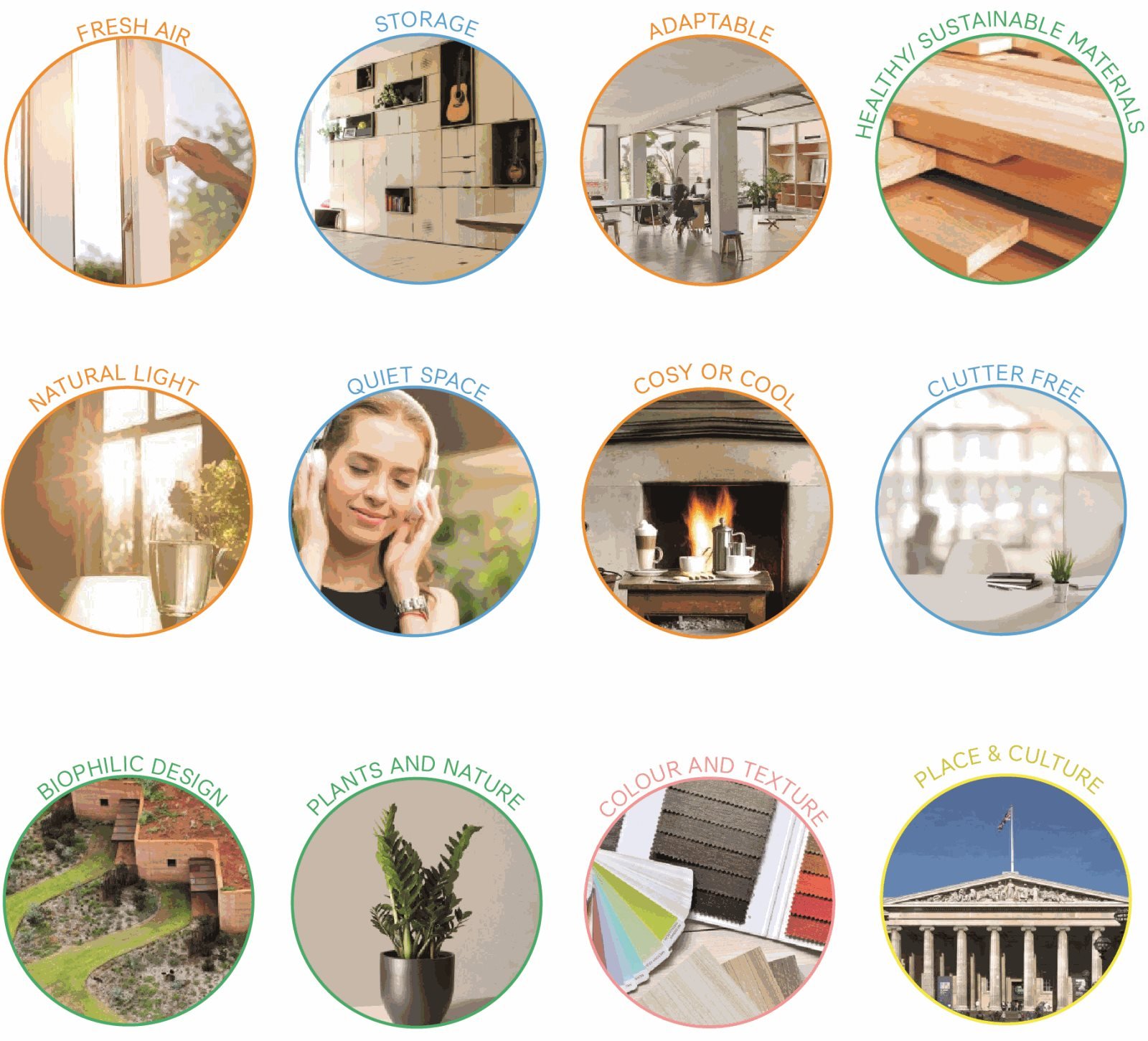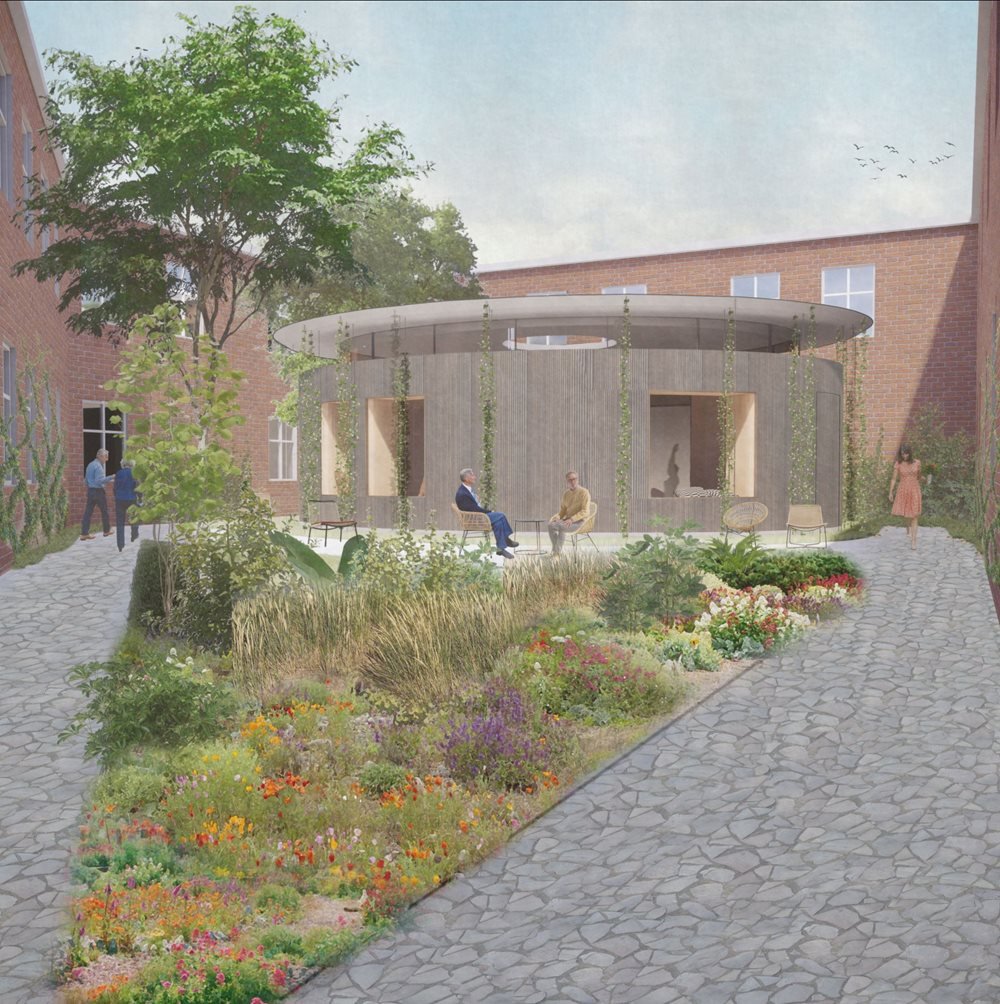How Can Wellness Design Improve Physical & Mental Health Support for NHS staff?
This blog originally appeared on the Heta Architects website in Feburary 2021, to link here to the original article.
Last year we took a deep dive into the mental health and wellbeing of clinical staff in UK hospitals and applied a design solution that represents a commitment to prioritising positive spaces and promotes mental wellness and resilience. In this setting, our wellness pavilion concept found an ideal application.
Workplace Wellbeing in the National Health Service
Workplace wellbeing in the NHS has been a long-term issue, but it has never been more keenly felt by staff than during 2020/21.
In addition to existing pressures on staff wellbeing, the pandemic has resulted in clinical workers reporting many negative effects on their mental health, such as increased anxiety, depression, stress, and burnout.
These symptoms are being caused and exacerbated by the pressure of changes to working roles and patterns, higher workloads, risks of infection, lack of PPE and testing, remote working, isolation from friends and family and greater concern for patients.
In August 2020, a survey of 42,000 nurses by the Royal College of Nursing revealed that 76% reported increased stress levels, with 91% saying they are concerned about the general wellbeing of those in nursing. In July 2020, 36% of nurses were contemplating leaving their profession.
Nearly 70% of wider healthcare workers also report a decline in mental health during the crisis and this has led to higher instances of sick leave and resignation, resulting in knock-on effects for wider teams and colleagues.
For some, the stress levels have been so high that 45% of staff reported symptoms that could be considered indicators of post-traumatic stress disorder.
How has the NHS responded?
There have been some initiatives to respond to these pressing issues and to provide staff with more support. Some Trusts have instigated ‘wobble rooms’ for nursing staff, which are hastily designated quiet spaces where they can retreat for some respite or seek support.
However, these spaces are not universal and only offer a quick-fix, short-term solution.
Longer term, there is a commitment to the future of wellbeing of staff through the NHS People Plan which seeks to improve physical and mental health support for all staff. While much of this relates to an organisational approach, we think they also need better spaces.
What is the solution?
A rapid response is needed to stem the flow of staff leaving their professions, and some innovative Trusts are leading the way in seeking out solutions to help combat staff mental health and wellbeing problems.
Our client in the NHS recognised that the lack of suitable space for respite and wellbeing of clinical staff is a block to providing them with support, and we worked with them to consider a design response to this issue.
With an existing need for extra capacity at a training facility, there was an opportunity to re-purpose an internal courtyard to meet these needs, creating an adaptable space for wellbeing, alongside training.
Our concept is a wellness pavilion, that encapsulates an alternative style of training facility, and is adaptable to create a space for sanctuary and respite, to provide counselling, coaching and wellbeing sessions. It will also be an inspiring place to have special team meetings and small events.
A design that prioritises wellbeing
Our architectural approach is heavily influenced by our knowledge of wellness design and, to maximise the support of staff wellbeing, we approached this project from a wellness perspective.
We harnessed our essential principles of wellness design; physical and mental wellbeing, nature, connection, and aesthetics, integrating them into every part of the pavilion. These principles ensure that our designs nudge users towards long-term behaviour change and contribute to preventing poor health.
Inspired by the surrounding natural landscape, the pavilion invites nature in. The deep human connection with nature supports physical, mental, and emotional health and wellbeing so we prioritised natural aspects of the site, including greenery and natural light. We also fulfilled the wishes of staff for access to nature, alongside communal outdoor space and seating for respite and sanctuary. Natural, sustainable materials, textures and colours also promote wellbeing.
The pavilion has fresh, clean air, limiting pollutants and supporting physical wellbeing, alertness, concentration, and creativity. Temperature and humidity can also be controlled to ensure optimal comfort in the space. There is easy access to purified drinking water, hot drinks, and food refrigeration storage. Natural lighting sources sit alongside a lighting system that ensures optimal levels of light are maintained throughout the day cycle with evening lighting providing softer, warmer tones.
Practicalities and ergonomic design ensure a minimal, clutter-free environment, plenty of storage and comfortable, adaptable seating.
The pavilion allows time and space for connection rather than task-based interactions, and through thoughtful use of the space, construction, materials, and amenities it creates an experience that encourages a positive state of mind and nourishes the soul.
This special space will be a welcome antidote to the norm, including minimal tech to support relaxation and the feeling of an ‘escape from work’. To enable optimum use, adaptability is key and the pavilion functions well for different room layouts: for learning and development, 1:1 or group coaching as well as wellness activities such as meditation or yoga, and the informal social catch-ups that will take priority above generic training needs.
A new era of wellbeing for hospital staff
In every element of the design, the wellness pavilion actively supports and promotes the wellbeing of clinical staff, representing the intent of the Trust to provide a space to pause and connect, and to provide areas that support the physical, emotional, and spiritual balance of those who need it so much. The wellness pavilion is at the very heart of a community of people who care and in creating this wellbeing and learning hub, it represents a new approach by the hospital Trust that prioritises NHS staff wellbeing.






